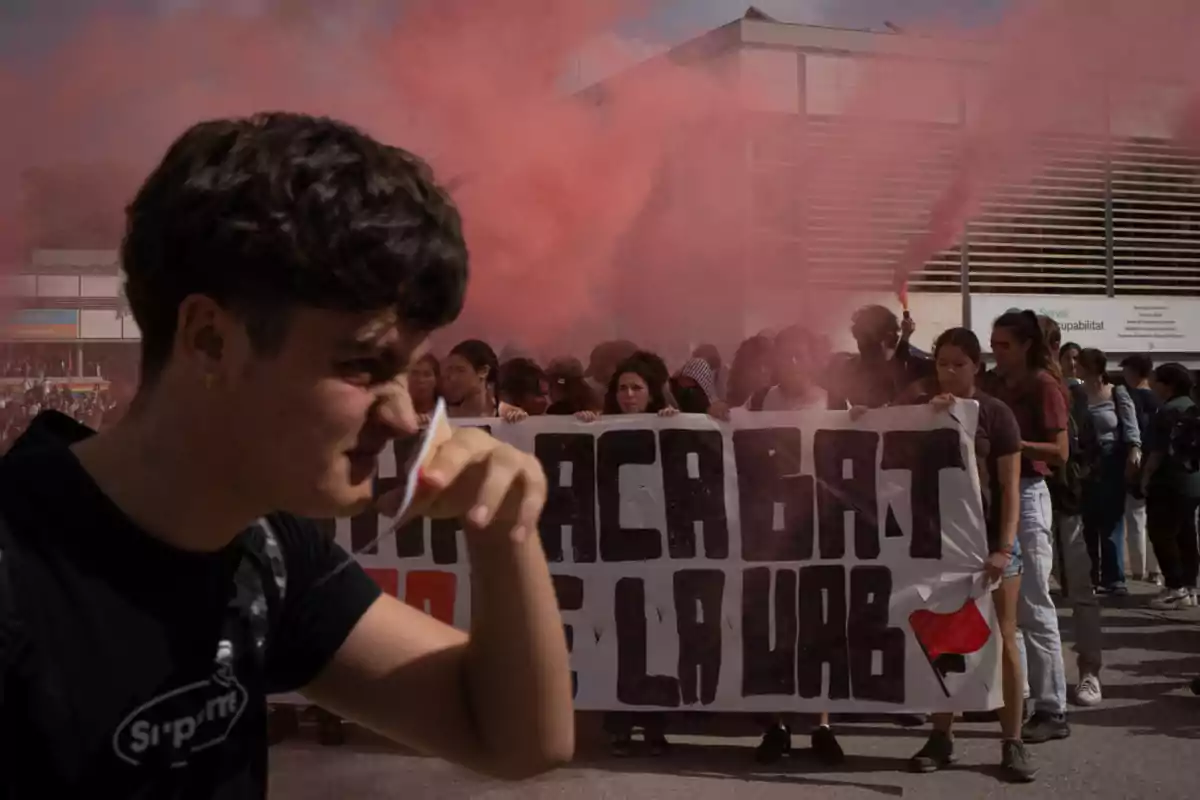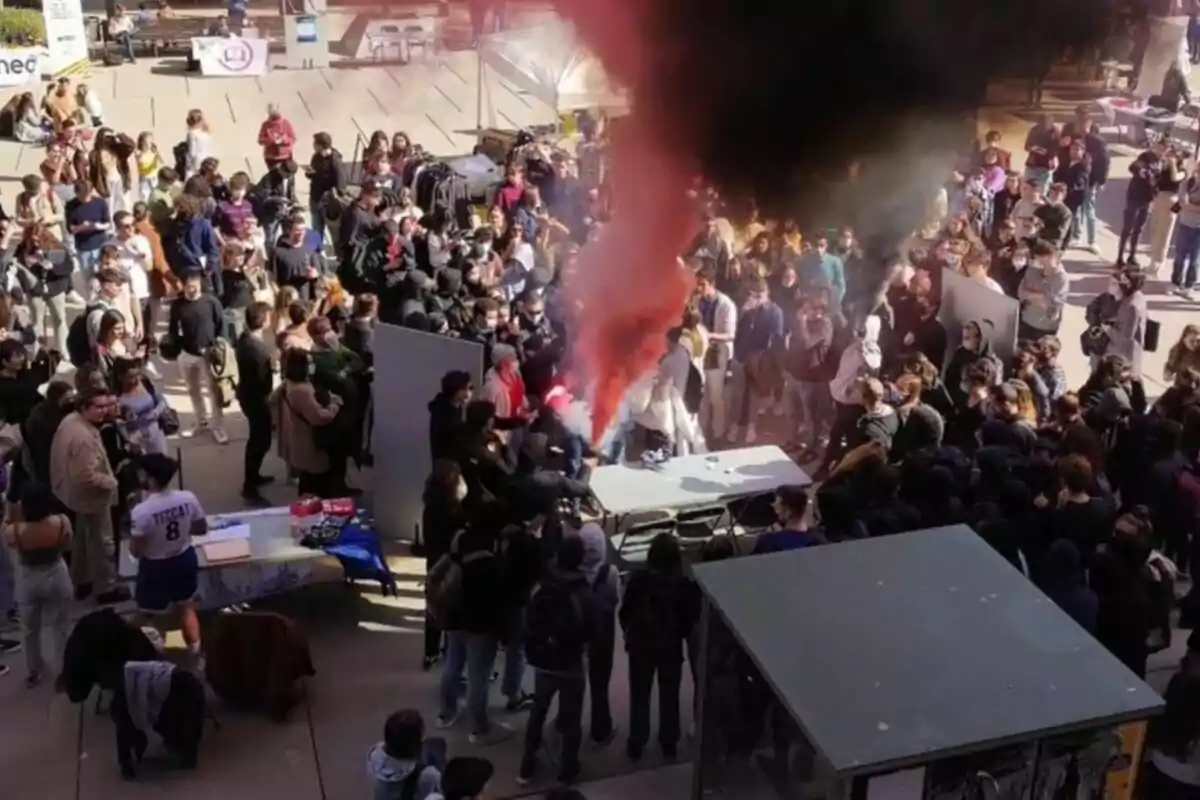
S'ha Acabat makes room in Catalan universities by defying separatism
The pro-separatism university is accumulating court rulings against it
For years, Catalan universities have been marked by an atmosphere of ideological hegemony linked to separatism and radical left-wing sectors. Expressions contrary to the pro-independence consensus have been subject to exclusion, cancellation, and even physical violence. However, this landscape is beginning to show signs of change. The student union S’ha Acabat has managed to make its way and consolidate its presence in several university centers, despite strong opposition from separatist groups.
One of the most significant victories for this group recently took place in the courts. The Provincial Court of Barcelona increased to two years the sentence against four separatist students who assaulted members of S’ha Acabat during an event at Universitat Pompeu Fabra. The attack, which took place in February 2022, was motivated by ideological reasons, as recognized by the ruling. The strikers prevented the entity's right of assembly through the use of violence, which led to the classification of a crime against essential rights.
This judicial ruling not only reinforces the right to ideological and expressive freedom in the university environment. It also sets a precedent against the impunity of political violence, a dynamic that has been present on several Catalan campuses. S’ha Acabat described the decision as a "historic precedent" and reaffirmed their commitment to continue fighting what they consider a climate of ideological totalitarianism.

Another recent judicial success was the annulment of the ban imposed by the Autonomous University of Barcelona on their participation in the organizations fair. UAB argued that the presence of the constitutionalist union could generate conflicts. However, the court recognized that such a ban constituted a form of ideological discrimination. The decision allowed S’ha Acabat to set up its information booth alongside the rest of the organizations, including separatist groups such as SEPC.
The pro-independence university also crumbles
These rulings come in a context in which Catalan universities show the tensions of a stage following the peak of the independence process. Several recent episodes, such as the cancellation of lectures, harassment of professors, or disruptions at institutional events, reflect the persistence of organized sectors that reject ideological plurality. The University of Barcelona, for example, suspended historian Fernando Paz's intervention after pressure from groups who described his presence as "hate speech."

Nevertheless, the judicial response to these acts of exclusion has begun to correct part of the imbalance. In this regard, the expansion of S’ha Acabat is also interpreted as a sign of the decline of the pro-independence model on campuses. The ideological dominance built over more than a decade now shows cracks, as is generally happening in Catalonia in all areas.
More posts: